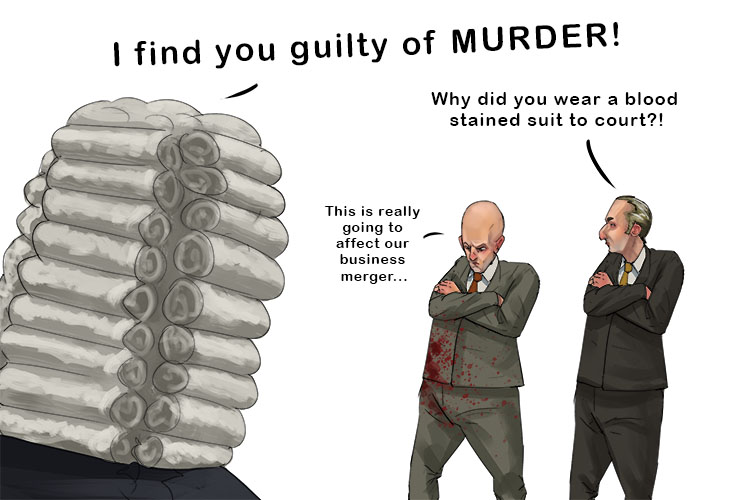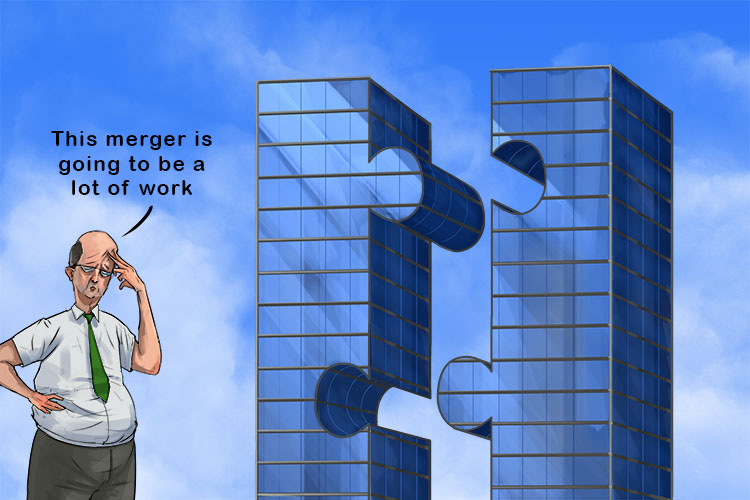Merger – When two or more businesses agree to join together to form a new company
(Pronounced mur-juh)
To remember what merger means use one of the following two mnemonics:
"I find you guilty of murder!" said the judge (merger). When the two companies formed into one new company, it didn't work out.

Or if you know what merge means:
To merge a (merger) number of businesses into one takes a lot of work.

A merger is different from a takeover. The key difference is that a merger involves a new firm being created and a takeover involves one firm acquiring the other. Companies will merge because one company can’t afford to buy the other out and vice versa, leading to the fact that mergers are normally carried between companies of a similar size. Often the shareholders refuse to sell but can see great gains if a merger occurs. In a merger, the companies involved decide to form a business entity and agree so voluntarily. A new name to trade under is often created.
The benefits of a merger are similar to those of an acquisition:
Both companies once merged can share their customer base and sell to those neither could previously.
Economies of scale can also be made, as making more of one item with the same factory will bring greater profits by saving on the cost per unit.
Reducing competition could mean that prices could be increased without loss of business, so more profits for both.
Care must be taken with mergers because different staff cultures with no clear leader could cause staff to leave.
Other issues include redundancies which usually occur with a merger, so this must be considered.




